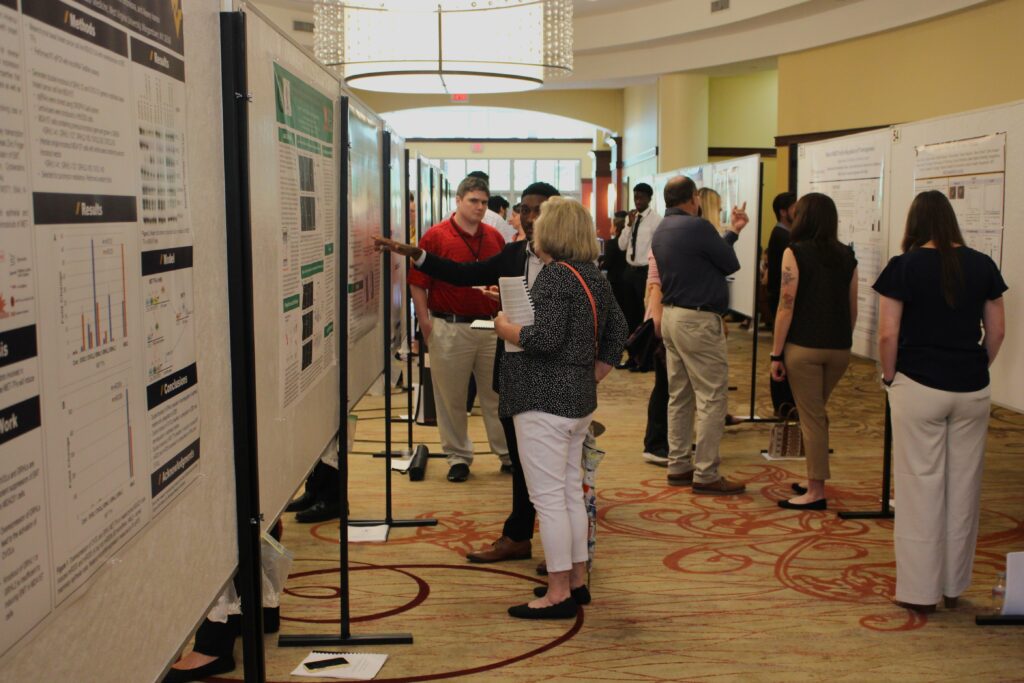An annual, statewide symposium is enhancing biomedical research in West Virginia’s colleges and universities.
The 22nd Summer Research Symposium of the West Virginia IDeA Networks of Biomedical Research Excellence – or INBRE – was held in Morgantown last week. Dozens of undergraduate researchers packed into a hotel conference hall to show off their summer’s work.
Gary Rankin is the lead investigator for the program. He said the symposium is a highlight of the year because it brings scientists together to support the next generation of researchers.
“The quality of the presentations this year has been really good,” Rankin said. “They range from looking at diabetes, to cancer, to environmental pollution, to all sorts of health effects, and particularly those that are appropriate to West Virginians.”
West Virginia INBRE is funded by the National Institute of General Medical Sciences. Through a statewide research consortium it has promoted biomedical research in the state for more than 20 years. The meeting is the culmination of a nine week summer research program where undergraduates from across the state present their work and discuss it with faculty.
Two such undergraduate researchers were Doris Agyemang of Glenmont State University and Katie Long of Fairmont State University. They partnered up while in the program to look at genes and gene therapies related to type two diabetes.
“Basically, all the methods used for this research were from what we learned during the boot camp for the month,” Long said. “We also got to work directly with the people who invented some of the newer stuff that we were using that hasn’t really been used a lot in the science field yet.”
Agyemang said they haven’t broken new ground with their work, but it’s still encouraging to contribute their research, and further conversations with other scientists and faculty working on the issue.
“Giving them another way or view on it is also interesting to us and hopefully, we get more chances like this in the near future,” she said.
Travis Salisbury is an associate professor at Marshall University whose own research focuses on gene expression. He said the symposium allows undergraduates – who don’t have as many opportunities to conduct their own hands-on research – a unique opportunity to find the spark that will set them on their own career paths.
“I think that’s what it is, it’s just exposing them to research to see if they’re interested in doing research further on, because that’s really how most of us got started, is just a science project,” Salisbury said.
Salisbury also said the symposium is an opportunity for working scientists like him to rekindle their passion for research and be assured the future of their work will be in good hands.




















